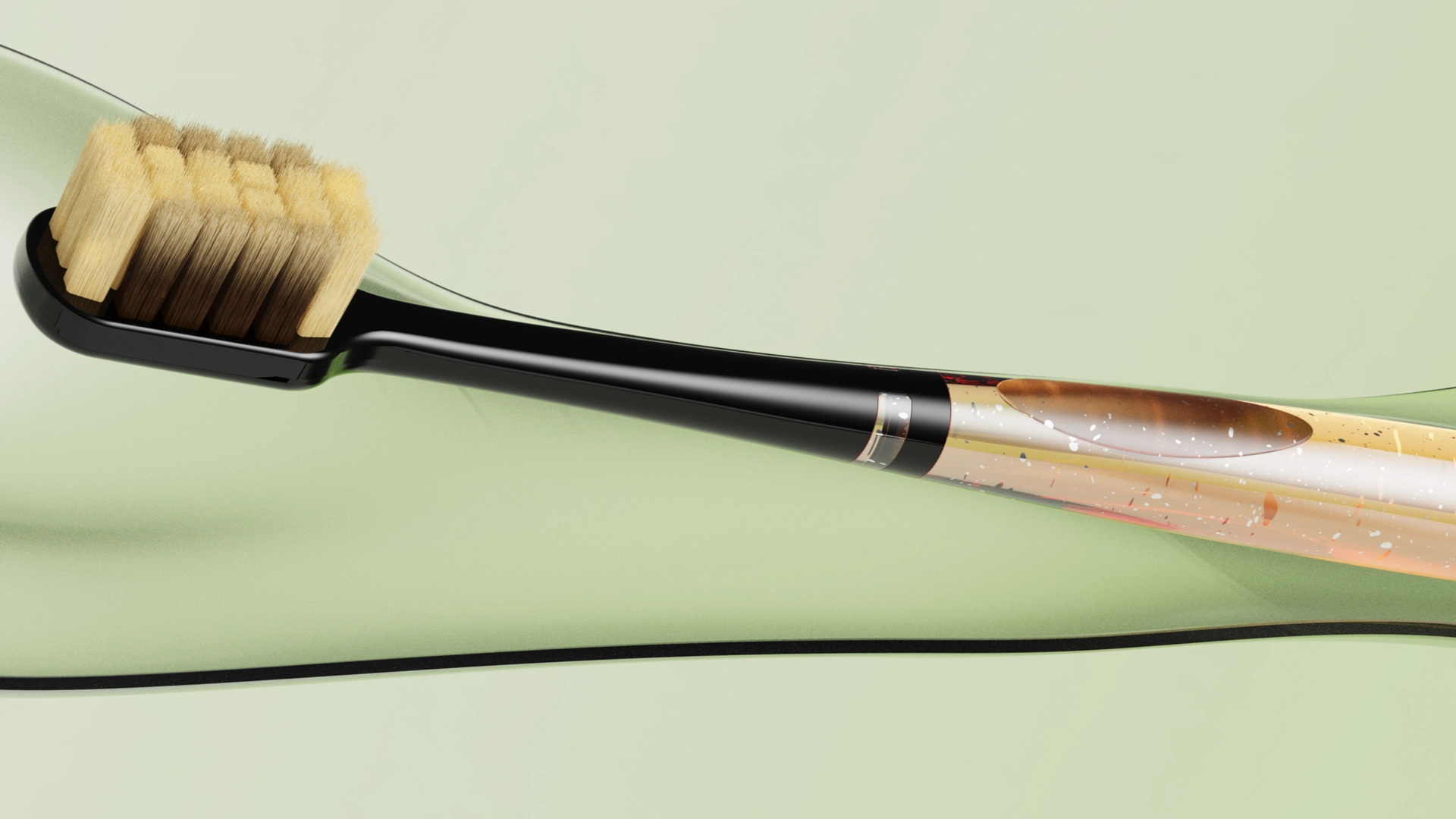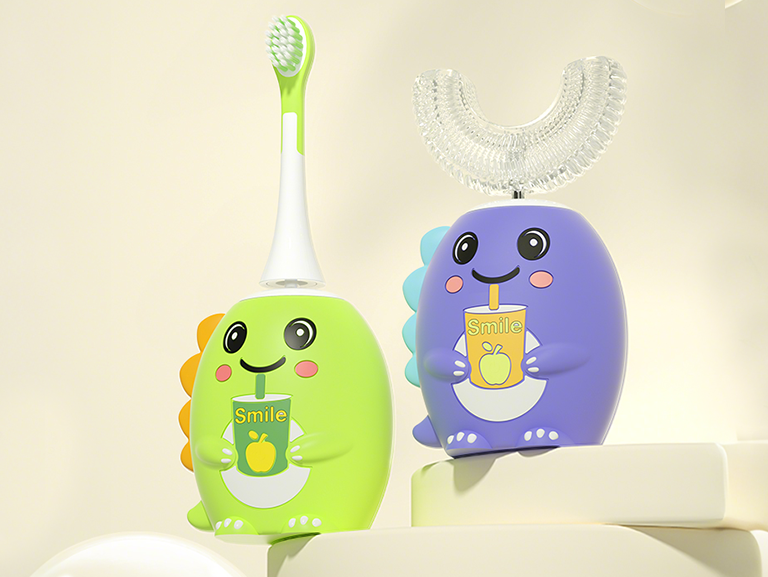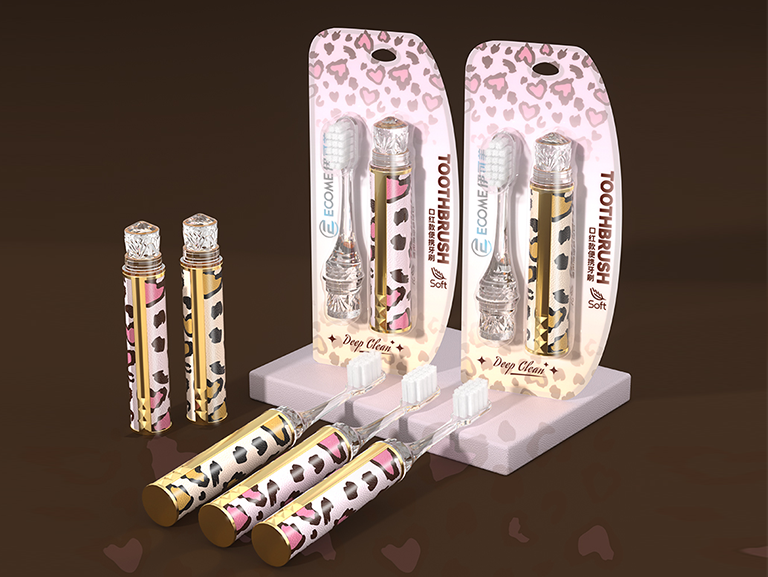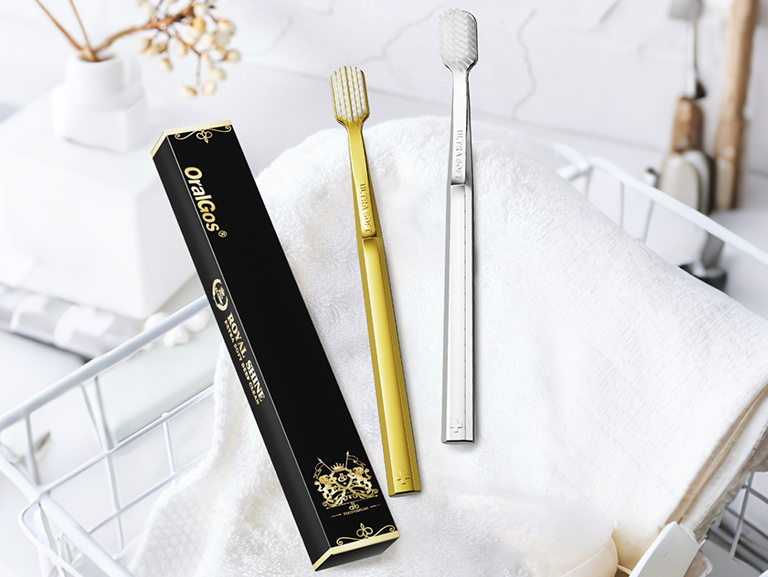Maintaining good oral hygiene is an important aspect of overall health and well-being. The habit of brushing our teeth has been ingrained in our daily lives for centuries, and as modern oral care has advanced, so have the tools we use. One such innovation is the soft toothbrush, which offers a gentler approach to oral care compared to traditional toothbrushes. In this article, we’ll take a deep dive into the many benefits of soft toothbrush and explore why they’re growing in popularity among dental professionals and individuals.
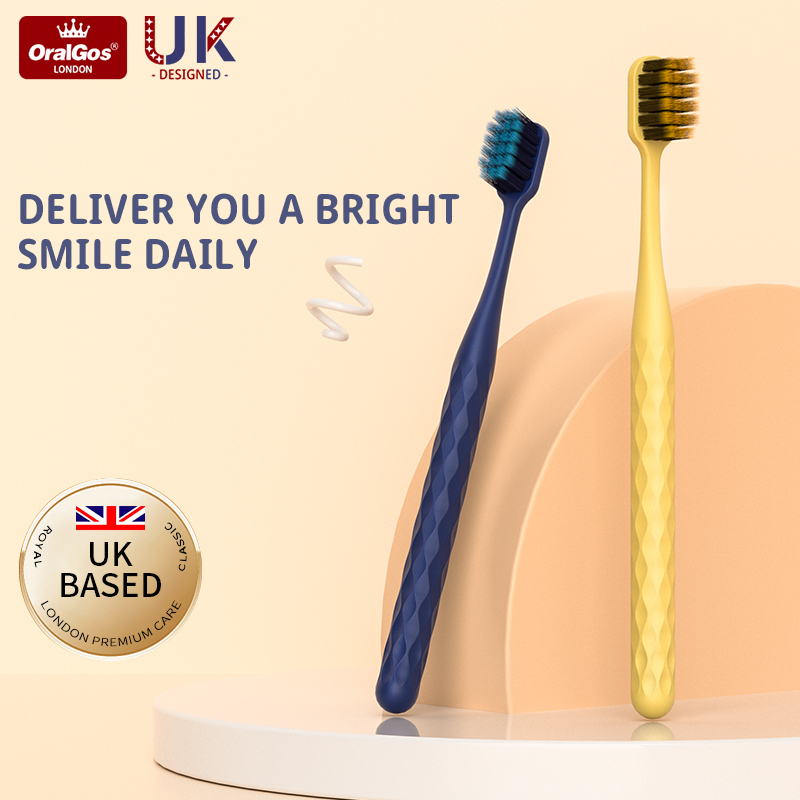
Learn About Soft Toothbrushes
The bristles of a soft toothbrush are significantly more flexible and softer than those of a medium or hard toothbrush. These bristles are usually made of nylon or other synthetic materials and are designed to provide a gentler cleaning experience on the teeth and gums. While both medium-bristled and hard-bristled toothbrushes have their own advantages, soft-bristled toothbrushes offer unique advantages that address specific oral health needs.
1. Gentle on gums and enamel
One of the main advantages of using a soft toothbrush is its gentleness, especially on sensitive gums and enamel. Brushing vigorously with a medium- or hard-bristled toothbrush may cause receding gums and wearing away tooth enamel, which can lead to long-term oral health problems. The soft bristles of the soft toothbrush effectively remove plaque and debris without unnecessary damage to delicate gum tissue and enamel.
Receding gums expose the roots of the teeth, leading to increased tooth sensitivity and a greater risk of tooth decay. A soft toothbrush reduces the risk of causing further gum recession and keeps your mouth healthy without damaging your gum line.
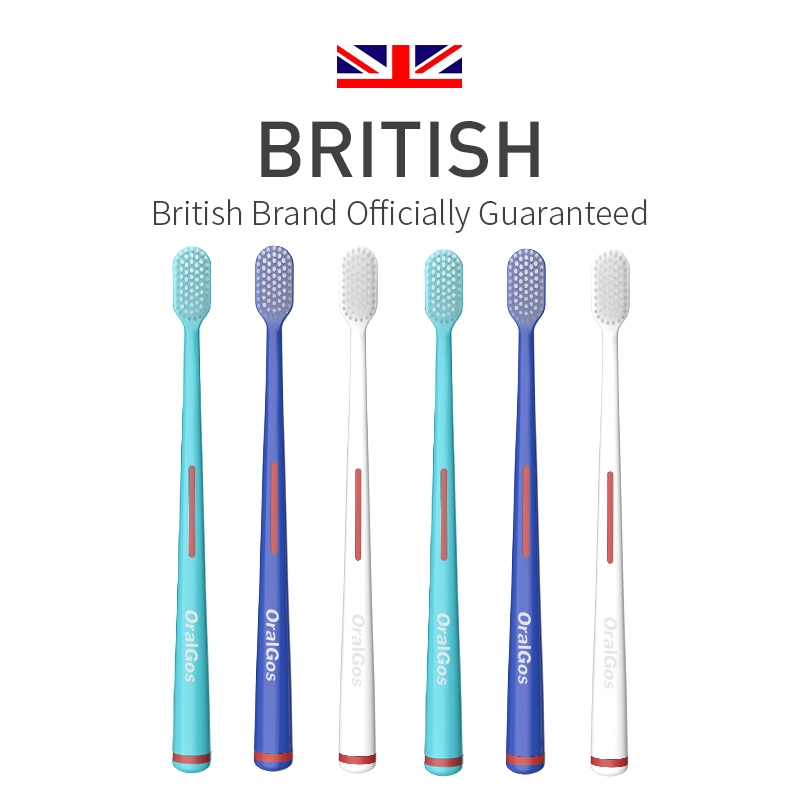
2. Great for sensitive people
Tooth sensitivity is a common problem, and for some, brushing can become a painful experience. Soft toothbrushes are a boon for those with sensitive teeth and gums. The soft bristles effectively clean teeth while minimizing discomfort, allowing sensitive people to maintain oral hygiene habits without unnecessary pain or stress.
3. Recommended for children and the elderly
Children and older adults often require special considerations when it comes to oral care. A soft toothbrush is especially beneficial for these age groups. Children’s gums tend to be more sensitive as their teeth develop, and using a soft toothbrush can help protect their oral tissues. Likewise, older adults may experience receding gums and tooth sensitivity, so a soft toothbrush is a suitable choice for comfortably maintaining oral health.
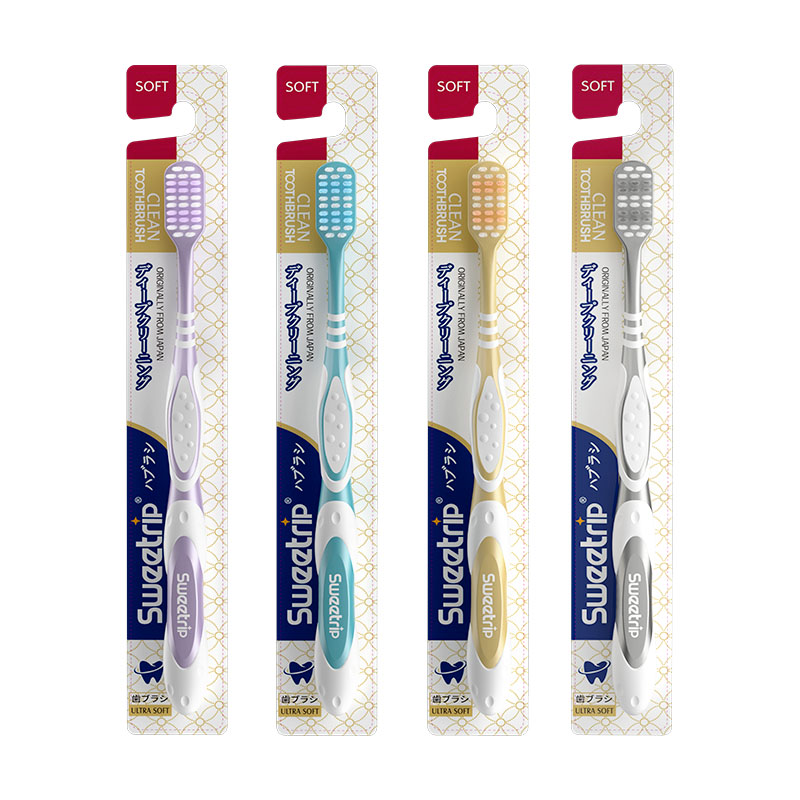
4. Promotes consistent brushing habits
An often overlooked advantage of soft toothbrushes is their ability to encourage consistent brushing habits. Ideally, brushing sessions should last two minutes, but many people rush through the process or avoid brushing altogether due to discomfort or inconvenience. The gentle experience provided by a soft toothbrush can make brushing more enjoyable, motivating people to follow the recommended timing of their oral care routine.
5. Suitable for various mouth shapes
Soft toothbrushes are versatile and suitable for people with different mouth sizes and tooth structures. Whether you have a small mouth, sensitive gums, or dental restorations like crowns or veneers, a soft toothbrush can meet your specific needs. The gentle bristles ensure a comfortable brushing experience while effectively removing plaque and maintaining oral hygiene.
6. Prevent overbrushing
Too much brushing or brushing too often can also damage your oral health. Using a soft toothbrush can help prevent overbrushing because the bristles are less abrasive, reducing the risk of damaging enamel or irritating the gums. This ensures that individuals can maintain a balanced oral care routine without inadvertently harming their teeth and gums.
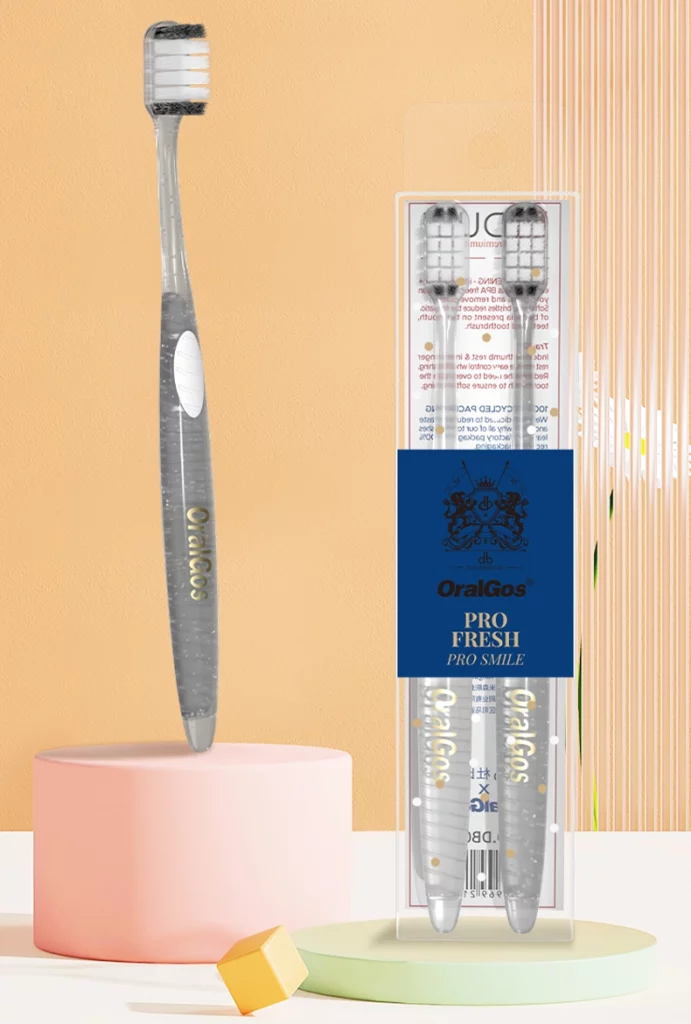
7. Compatibility with toothpaste
Soft toothbrushes are compatible with a variety of toothpaste formulations, including those designed for sensitive, enamel-strengthening, and whitening toothpastes. This compatibility allows individuals to choose a toothpaste that meets their specific oral health needs without worrying about additional discomfort or adverse effects from the toothbrush.
8. Easy transition
Transitioning from a medium or hard toothbrush to a soft toothbrush is usually simple and seamless. People who have used conventional toothbrushes for years may be concerned about the effectiveness of soft toothbrushes. However, the gentle yet highly effective cleaning action of the soft bristles quickly reassures the user of its benefits.
9. Dentist recommendation
Dental professionals often recommend using a soft toothbrush for a variety of oral health conditions. Dentists recognize the potential damage that can be caused by using hard-bristled toothbrushes, and they advocate the use of softer toothbrushes to promote better oral hygiene habits and prevent long-term complications.

Advantages of MARBON GROUP
For over 25 years since its establishment, Marbon Group has been committed to providing users with high-quality and affordable toothbrushes and related oral care products. In addition to strictly following industry standards to produce qualified, high-quality, safe, and environmentally friendly products for customers, we also vigorously develop our independent innovation and research and development capabilities. Compared with similar products in the market, Marbon Group’s soft bristled toothbrush has the following advantages.
1. Minimizes the risk of brushing too hard
Many people don’t realize how much pressure they exert when brushing their teeth. Using a toothbrush with stiffer bristles may inadvertently lead to over brushing, which can have adverse effects on oral health. A soft toothbrush is a natural safeguard against this problem. The gentle bristles encourage users to touch lightly while brushing, minimizing the risk of excessive pressure on teeth and gums.

2. Great for people with dental problems
If you suffer from dental conditions such as gingivitis, periodontitis or tooth sensitivity, a soft toothbrush will be even more beneficial. These conditions require extra care and attention during daily oral hygiene to prevent further damage. The soft bristles provide the gentle cleaning necessary without aggravating existing dental problems for a more comfortable brushing experience.
3. Longer service life
Soft toothbrushes generally last longer than hard or medium-bristled toothbrushes. The reason is in their construction, as the bristles are less prone to fraying. By replacing your toothbrush less often, you not only save the environment less waste, but you also save money in the long run.

4. Suitable for orthodontic appliances
For people who wear braces, retainers, or other orthodontic appliances, oral care can be more challenging due to the presence of these devices. In this case, a soft toothbrush also has an advantage. Flexible bristles move around wires and brackets without causing damage, ensuring oral hygiene is not compromised during orthodontic treatment.
In summary
The benefits of a soft toothbrush are numerous and far-reaching. From promoting gum health and enamel protection to caring for sensitive teeth and aligners, soft toothbrushes offer a gentle yet effective way to maintain optimal oral hygiene. By choosing a soft toothbrush, people can prioritize oral health without compromising comfort and well-being. As the science of dentistry continues to evolve, innovations such as embracing the soft toothbrush emphasize the importance of adapting and integrating new methods into ancient habits, ultimately leading to brighter, healthier smiles in the future.

